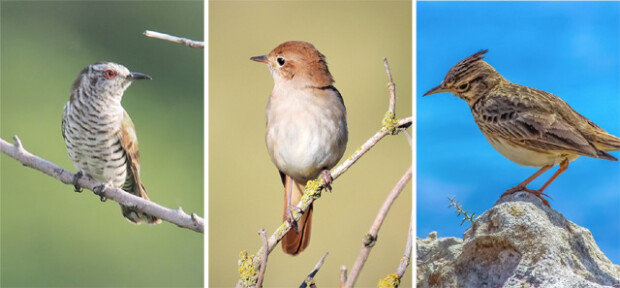The sound of birds in classical music
The sound of birds in classical music
Posted August. 25, 2020 07:25,
Updated August. 25, 2020 07:25


Ludwig van Beethoven introduced the sound of birds at the end of the second movement of his Symphony No. 6 “Pastoral.” Those who listen to the score would easily recognize the sound of cuckoo played by clarinets. Flute imitates the sound of nightingale while oboe represents quail. People’s love for the sound of birds dates back a long time and it has often been captured in music. The sound of birds has also been expressed in gukak (Korean traditional music), such as “Sae Taryeong,” a folk song from South Jeolla Province.
Mozart’s opera Magic Flute features the bird-catcher Papageno, who captures birds by imitating their sound with the flute. The music Mozart jotted down in his account book became the opening bars of the third movement of his Piano Concerto No. 17. According to an anecdote, Mozart held a funeral ceremony for his pet starling with his friends after it had died three years later.
A grace note accompanying the melody given to the first violin in Haydn’s String Quartet No. 53 “The Lark” reminds one of the chirping sound of a little lark. “The Lark Ascending” by the English composer Vaughan Williams is another music that involves a lark. It describes a tiny lark flying over the spring field.
This music is particularly familiar to Koreans because it was the music for figure skater Kim Yuna’s free program for her first senior season in 2006. She was 16 back then. The program left a strong impression to figure skating fans around the world with an image of a young figure skater soaring towards the world of adults.
While larks sing beautifully, the top stars in the world of bird singers are nightingale and cuckoo in Beethoven’s Pastoral. Italian composer Ottorino Respighi recorded the sound of a nightingale and played it in his music. The first movement of Gustav Mahler’s Symphony No. 1 begins with the sound of birds. The sound of a cuckoo played by clarinet is particularly easy to recognize.
The sound of birds was supposed to be heard at various concert halls in Seoul this week. The Daejeon Philharmonic Orchestra was set to perform Beethoven’s Symphony No. 6 “Pastorale” under the lead of conductor James Judd at the “Classic Revolution” hosted by Lotte Concert Hall on Wednesday and the Seoul Philharmonic Orchestra was scheduled to perform “The Lark Ascending” together with conductor Osmo Vänskä and violinist Esther Yoo at the Concert Hall of the Seoul Arts Center on Thursday. Those concerts have been canceled due to a resurgence of COVID-19.
Outbreak of infectious diseases and the floods that recently swept the East Asian region are all caused by wrecked relationship between human and nature. Hopefully, humanity will find ways to overcome the crisis and regain the disappearing sound of birds by reconciling with nature.
gustav@donga.com
Headline News
- Med professors announce intention to leave hospitals starting Thursday
- Bridge honoring Sgt. Moon Jae-sik unveiled in Pennsylvania
- Chief of Staff Chung tells presidential secretaries to stay away from politics
- US FTC bans noncompete agreements
- N. Korea launches cyberattacks on S. Korea's defense companies







